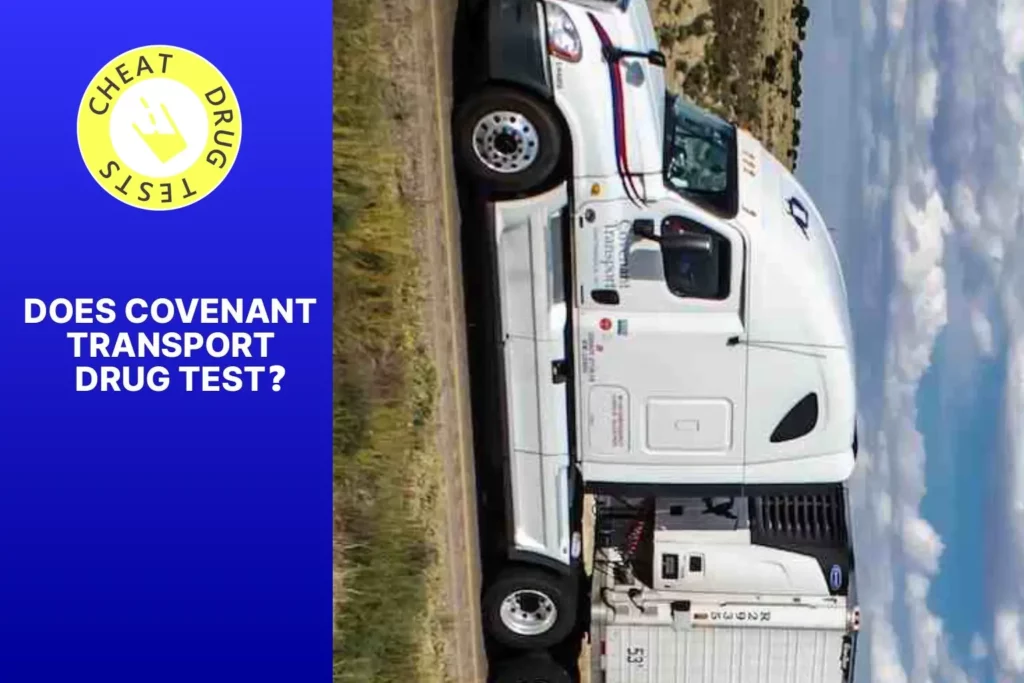To better understand drug testing in the workplace, let’s dive into the world of bank tellers and whether they undergo drug testing. Discover the ins and outs of pre-employment drug screening and the methods used, such as urine tests. Explore the topic with expert insights from Urologist Rebecca Stephens.
Explanation of drug testing in the workplace
Drug testing in the workplace is a popular practice for employers. They may need staff to take tests when they are hired, or randomly after. Samples such as urine, blood, saliva, or hair are checked for drugs or alcohol.
Employers must make sure drug testing respects legal needs and employee privacy rights. Companies should tell staff which substances are tested for and the consequences of a positive result. Drug testing helps companies avoid substance abuse, accidents, and keep a professional atmosphere.
Drug testing can be criticised. Some say it is invasive or goes against individual freedom. Employers usually decide safety is more important than personal freedom when making policies about drugs. With the right plan, a company can spot employees with problems with substances and give them help.
John’s story is a good example. He was a great employee until his work went down. His supervisor suspected addiction and spoke to him privately. John got help and kept his job, plus his productivity returned.
The Importance of Drug Testing for Bank Tellers
To ensure a drug-free workplace for both employees and customers, drug testing plays a vital role in the banking industry. The sub-sections of this discussion will shed light on the risks associated with drug abuse in the banking industry and the importance of maintaining a drug-free workplace. Let’s explore these topics further.
Risks of drug abuse in the banking industry
Drug abuse has ethical and practical implications. Bank tellers, handling large sums of money, can be vulnerable to financial losses for both the bank and its customers. It can also create a hostile work environment, affecting productivity and team dynamics. Moreover, it poses serious security risks, with individuals desperate for money, and threatening the banking industry’s reputation.
A study by the American Bankers Association found that drug abuse has been on the rise in recent years. This highlights the need for effective measures, such as drug testing, to prevent and address this issue.
It is essential for banks to implement strict drug testing policies. This ensures their employees maintain professional standards, and remain free from substance abuse. Also, it can help identify individuals struggling with addiction early on, offering them support and resources to overcome their challenges, while safeguarding their own interests.
The need for a drug-free workplace
A drug-free workplace is vital for bank tellers. They must be in a clear state of mind to ensure the integrity of financial transactions. Taking drugs can lead to mistakes, fraud or the loss of customer trust. This can put the bank and its customers in danger.
Drug testing is not just important for creating a professional atmosphere. It also safeguards employees and customers. Bank tellers handle sensitive information such as accounts and cash. Drug use may cause mistakes or bad decisions with serious consequences.
Drug use among bank tellers can also damage their physical and mental wellbeing. This may lead to poor job performance and a decrease in productivity. For this reason, banks must implement drug testing to identify any issues and provide assistance or intervention.
Not having a drug-free workplace puts the bank’s reputation in jeopardy. Clients and corporate partners may lose faith and the bank could face legal problems. It is essential for all banks to understand the importance of a drug-free workplace and show commitment to ethical conduct.
Periodic drug testing should be used to monitor bank tellers. This promotes accountability and reminds everyone of their responsibility to uphold the bank’s reputation. A drug-free workplace will give customers, employees, and stakeholders confidence and trust. This is a vital responsibility and neglecting it can have severe consequences. Working together, we can create a safer banking environment.
Pre-Employment Drug Screening for Bank Tellers
To ensure the suitability of bank tellers, pre-employment drug screening with urine tests is commonly conducted. This section provides an overview of the pre-employment drug screening process for bank tellers. Additionally, it explores the types of drug tests commonly used in this field.
Overview of the pre-employment drug screening process
Pre-employment drug screening is an essential part of the process of hiring bank tellers. It ensures that applicants are suitable for their job and uphold the utmost level of trustworthiness and professionalism. Let’s have a closer look at the overview of this screening.
A table showing the pre-employment drug screening process for bank tellers:
| Screening Step | Description |
|---|---|
| Application Review | Initial review of candidate’s qualifications, experience, and references |
| Drug Testing Consent | Obtaining candidate’s consent for drug testing |
| Drug Test | Conducting a comprehensive drug test, typically urine or saliva-based |
| Laboratory Analysis | Sending samples to a certified laboratory for analysis |
| Results Evaluation | Reviewing test results and checking for any substances of concern |
| Decision Making | Considering test results along with other factors to make an informed hiring decision |
It’s important to note that confidentiality is maintained throughout the process. Only those authorized have access to the results, thus ensuring privacy and following legal regulations.
I remember a certain incident regarding someone being considered for a bank teller position. The initial screening went well, but surprisingly, the drug test came back positive for a prohibited substance. Further investigations uncovered that the applicant was taking prescription medication without proper documentation. This incident showed the significance of pre-employment drug screening in making sure a secure and reliable banking system.
To sum up, pre-employment drug screening is essential in protecting banks and their customers by selecting people free from drug use. By using such measures, banks can ensure trust in their financial services while maintaining high ethical and professional standards among their staff.
Types of drug tests commonly used
Drug tests for bank tellers must be done to make sure they’re reliable. The main tests are urine, hair follicles and saliva swabbing. Urine is the best as it shows recent drug use. Hair follicles can detect use for up to 90 days. Saliva swabbing is for quick results. Blood tests may be done if there’s suspicion of recent drug use, but it’s not usual.
Suggestions on drug screening process:
- Make a policy about substance abuse.
- Use multiple tests for accuracy.
- Regularly check the list of drugs being tested.
- Train HR on procedures & legal stuff.
- Educate applicants & provide help.
By following these, banks can have a trustworthy workforce and reduce risks associated with drug use.
Urine tests as the most common method
Urine tests are a popular choice for drug screening in the banking industry. Why? Let’s take a look. They are accurate in detecting drugs, easy to collect, have a long window of detection, are cost-efficient, and provide legal protection. Plus, they can detect any attempts to adulterate or dilute the sample.
The Society for Human Resource Management’s research shows that 82% of organizations use this method.
In summary, urine testing is the go-to choice for bank teller pre-employment drug screening. It gives employers assurance that their work environment remains drug-free and the selection process is fair.
Explanation of urine test procedures
Urine tests are a must for pre-employment drug screening of bank tellers. This ensures the selection of drug-free people who can handle financial transactions properly.
- The first step is to take a sample of the candidate’s urine. This is done with careful supervision, to stop any changes or impurities.
- The sample is then shipped to a certified lab for analysis. The lab follows strict protocols for accurate results.
- It looks for drugs such as marijuana, cocaine, amphetamines, opioids, and benzodiazepines. This helps identify any drug problems that might be a risk in banking.
- Advanced technology like immunoassay testing and GC/MS is used to detect even tiny amounts of drugs.
- The test results are given to the employer who decides if the candidate is suitable for the job.
Other measures may be taken for higher accuracy. This could include retesting randomly or more frequent screenings after the person is hired.
This process has been helpful in protecting banks. In 2017, a bank teller was found guilty of fraud through routine drug testing. This shows the value of pre-employment drug testing in maintaining trust in banking.
Drug testing is important for security. It makes sure personnel with financial duties don’t use drugs. It also helps make the banking environment safer and more efficient.
Drug Testing Policies and Procedures for Bank Tellers
To ensure a safe and reliable workforce, drug testing policies are implemented for bank tellers. Understand the legal considerations and regulations surrounding these policies. Discover the employer’s responsibility in implementing drug testing procedures. Additionally, learn about the frequency of drug testing for bank tellers. Stay informed and approach your banking career with confidence.
Legal considerations and regulations
With regards to drug testing policies and procedures for bank tellers, there are legal considerations and regulations that must be abided by. These include complying with federal laws, taking into account state-specific regulations, and following Equal Employment Opportunity Commission (EEOC) guidelines.
It is also important to consider the privacy rights of the employees during the testing process. Banks typically establish comprehensive drug testing programs that include pre-employment screening, random testing, and post-accident testing.
A report published by the American Bankers Association (ABA) revealed that 94% of banks in the United States have implemented some form of drug testing program for their employees.
Employer’s responsibility in implementing drug testing policies
Employers have a big job in implementing drug testing policies for bank tellers. This includes defining the tests and how often they will be done. Also, employers must communicate the policy effectively. Documentation and info sessions are necessary. Employers should team up with medical professionals for accurate results and to keep employee info private. Plus, consider offering EAPs to help those with substance abuse problems. This reinforces a commitment to a drug-free workplace.
Frequency of drug testing for bank tellers
Drug testing is essential for a secure banking atmosphere. It defends employee honesty while protecting customers and the institution. Regular tests stop possible drug use and decrease the danger of weak service quality.
The table below reveals the frequency of drug tests for bank tellers:
| Frequency | Testing Criteria |
|---|---|
| Pre-employment | Mandatory |
| Random | Periodic |
| Post-accident | Immediate |
| Suspicion-based | When justified |
The table shows pre-employment drug testing is compulsory. This guarantees only individuals without substance abuse get hired for trust roles. Additionally, random testing is done regularly to prevent employees from illegal activities during their job.
Post-accident drug testing happens right away for cases involving tellers. This decides if drug influence was in such events, so the right action can be taken if needed. Also, suspicion-based testing may take place when there are good reasons to think an employee is under the influence.
To maximize the success of drug testing policies, here are some ideas:
- Provide education programs: Banks should give regular teaching sessions about the consequences of substance abuse and how it affects job performance. By teaching employees the risks of drugs, they are more likely to stay away from temptation and make wise decisions.
- Set up secret reporting systems: Making secret channels for reporting suspicions makes sure both employees and customers feel comfortable to share worries without fear of punishment. This helps keep a high level of faith inside the organization.
- Support rehabilitation programs: Instead of only punitive measures, banks should offer help to employees facing substance abuse by giving access to rehabilitation programs. This not only shows sympathy to affected individuals but also encourages them to ask for help and go back to useful roles.
By using these tips, banks can form a drug-free work environment that fosters trust, safety, and overall performance excellence. Regular testing alongside proactive measures guarantees the lasting integrity of bank tellers and builds trust in customers who depend on their services.
The Impact and Implications of Drug Testing for Bank Tellers
To highlight the impact and implications of drug testing for bank tellers, let’s delve into the benefits of maintaining a drug-free workplace. Additionally, we’ll explore the privacy concerns and ethical considerations surrounding drug testing. This will help shed light on the importance of pre-employment drug screening, including urine tests, for bank tellers.
Benefits for maintaining a drug-free workplace
Creating a drug-free workplace has multiple benefits for an organization. It keeps workers safe and healthy by reducing the risk of accidents from impaired judgement. It boosts productivity and customer satisfaction. It also builds trust between colleagues. Lastly, it meets legal requirements and guards against any liabilities caused by substance abuse.
When it comes to bank tellers, there are extra considerations. Companies should educate their employees about the dangers of drugs and the importance of a drug-free workplace. Furthermore, providing supportive services such as counseling or employee assistance programs can help those with addiction and create a caring environment.
To attract top talent, organizations must make their workplace appealing. By enforcing a drug-free policy, businesses show they care for employee safety and wellbeing. This demonstrates responsibility and sets them apart from the competition. It also makes for a successful and sustainable business.
Privacy concerns and ethical considerations
Bank tellers may feel their privacy is being violated from drug testing. It has the potential to cause reputational damage if used or disclosed without consent. Ethical questions arise when determining the punishment for a positive test, like job loss. To prevent discrimination, policies must be unbiased and applied consistently. Confidentiality is key to protecting personal info and building trust.
Impact of drug testing must be considered – it could improve safety or cause mistrust & affect well-being. There have been legal cases, such as one involving a bank teller who lost their job after failing a test. The court ruled in favor of the bank, prioritizing public trust over privacy.
Conclusion
To conclude, the overall drug testing practices for bank tellers can vary, given the specific policies of each financial institution. However, it’s essential for both employees and potential job applicants to be aware of the possible drug testing protocols in place. In summary, this article has provided an overview of drug testing considerations for bank tellers, helping you understand the potential requirements and implications.
Summary of drug testing practices and considerations for bank tellers
Drug testing for bank tellers is essential to keep a secure workplace. Here’s a summary of the practices and considerations:
- Regular drug tests: Bank tellers must take regular drug tests to keep their role honest and make sure they are not using any banned substances.
- Pre-employment screening: Potential bank tellers must go through comprehensive drug screening before they get employed.
- Randomized testing: Bank tellers may also have to do random drug tests to prevent abuse in the workplace.
- Confidentiality: The results of these tests are kept private to protect the bank tellers’ privacy and reputation.
As a reminder, it’s important for bank tellers to stick to drug testing practices. They should look after themselves and avoid doing anything that would make them fail future drug tests.
Pro Tip: Bank tellers should learn their bank’s drug policies so they can stay compliant.
Frequently Asked Questions
Frequently Asked Questions about Drug Testing for Bank Tellers
1. Do bank tellers get drug tested?
Yes, bank tellers can be subjected to drug testing. It is a common practice for banks to conduct pre-employment drug screening to ensure a safe and trustworthy work environment.
2. What kind of drug test do bank tellers typically undergo?
Bank tellers commonly undergo urine drug tests for their pre-employment screenings. This type of test can detect the presence of various drugs in the body.
3. Are current bank tellers also subjected to drug tests?
Yes, some banks have policies that include random drug testing for current employees, including bank tellers. This helps maintain a drug-free workplace environment.
4. Why do banks drug test bank tellers?
Banks drug test bank tellers to ensure that they are hiring individuals who do not engage in illegal drug use. This helps maintain a safe and secure environment for both customers and employees.
5. Can prescription medications affect the drug test results for bank tellers?
Yes, certain prescription medications can potentially affect the drug test results of bank tellers. It is important to disclose any prescription medications during the screening process to avoid any potential false positives.
6. Is the privacy of bank tellers maintained during drug testing?
Yes, the privacy of bank tellers is maintained during drug testing. The process is conducted in a confidential manner, and the results are typically shared only with the appropriate individuals within the bank.
Cheat Drug Test articles & impartial reviews are funded by affiliate commissions, at no extra cost to you, our awesome readers. Learn more



